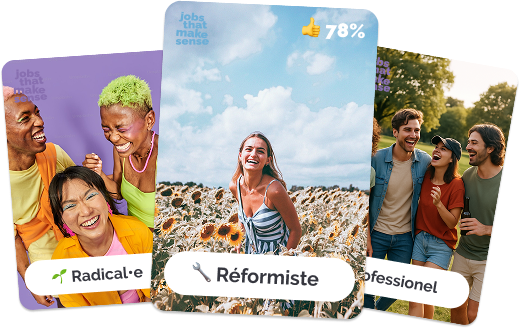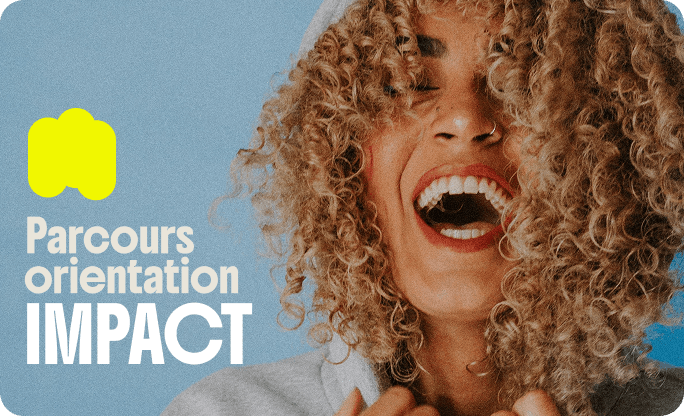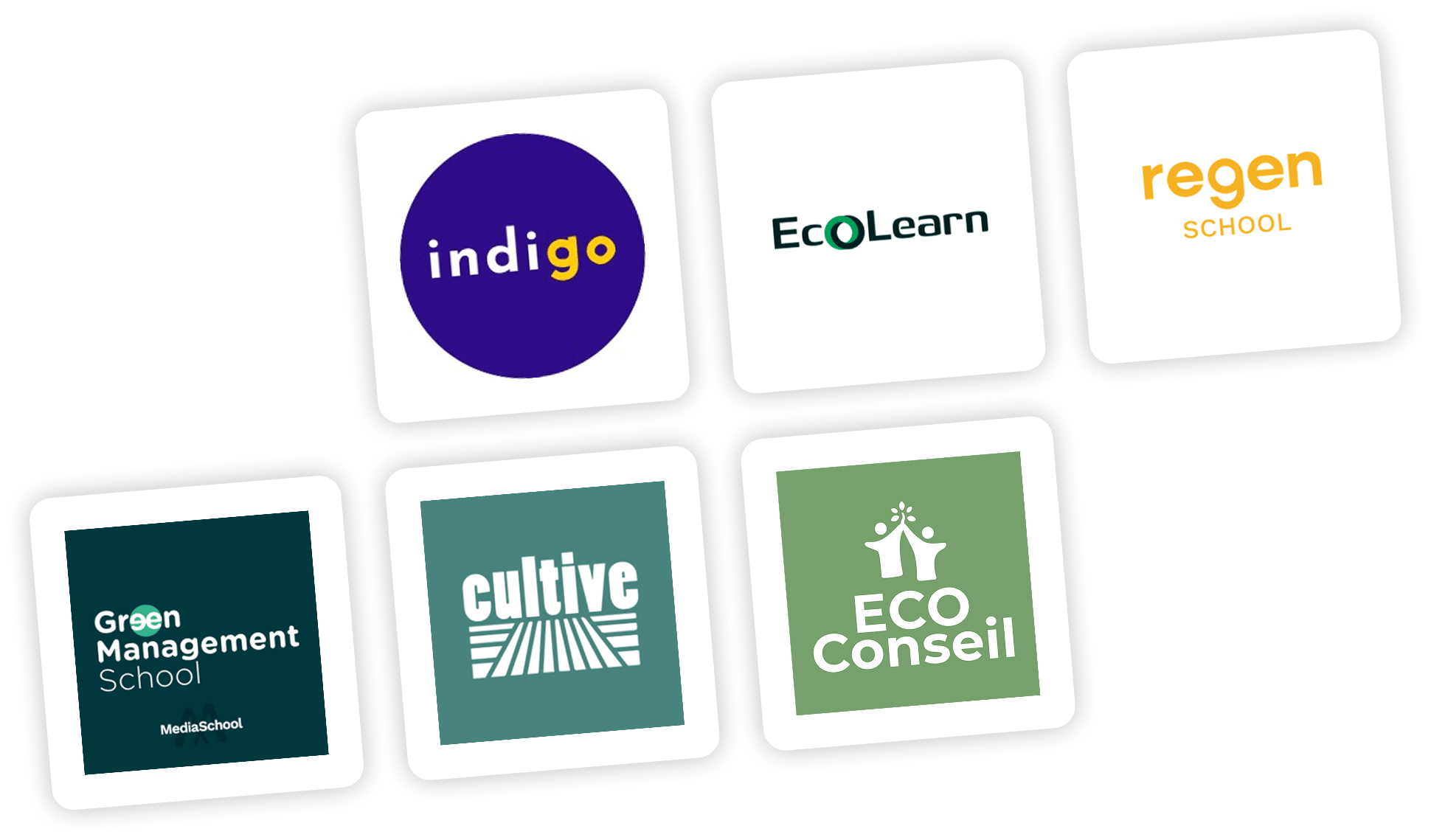10 tips for finding your way to impact
Your professional life has not started and you are already asking yourself 100 questions? Lacking fulfillment and meaning, do you want to change career paths? You are thinking of professional retraining in the field of impact, but what to retrain? Would you also like to work with passion like this friend who made a change of direction in craftsmanship? First of all, to find your way, you need to focus on one person: you.
And so, how do we go about it? Here are our 10 tips for finding your way
Tip #1 - Landing
Simply asking yourself is sometimes necessary before thinking about possible professional reorientations. The covid crisis has been proof of this: asking the French people to rethink their relationship to work. The results were as follows:
- Desire for a better work/personal life balance (reduction of working time, telecommuting, moving, etc.)
- Conversions
- Desire to undertake professional training: the number of training requests almost doubled between 2019 and 2020, rising from 500,000 to 1 million.
In the daily routine, with your head in the handlebars at work, it is not easy to think of yourself. Sitting down and listening to yourself is a first step in initiating a personal and professional transition, as explained by Matthieu Tellier, occupational psychologist in our article.
Tip #2 - Ask yourself questions
“All these questions: where am I? or I'll ? if we don’t ask ourselves them regularly, we go where the company takes us.”
Matthieu Tellier - work psychologist
To identify a career path, maybe start by asking yourself a few questions about yourself:
around your personality
To define your professional orientation, knowing yourself well is a real plus. This allows you, for example, to express your needs in the context of work and to obtain a framework, missions more aligned with who you are. So who are you? How do your friends and family describe you? Are you more of an introvert? calm ? Do you need to be in contact with others? Are you someone who needs to organize things? Do you love solving complex problems?
About your experiences
Before living from your passion, you sometimes have to have changed jobs several times to know what you like. Experiences allow you to get to know yourself better and to identify what you liked and disliked. What are the professional steps that have positively marked you? Why did you thank you? If you haven't started working, explore the actions you have taken with your friends, your family, at school or in your community life. What did you like doing? What brought you joy? What activities were you doing when you were losing track of time?
Tip #3 - Do a skills assessment
Very popular in recent years, the skills assessment is a program to take stock of you and your experiences to build a new professional project aligned with your current self. It can be a way to evolve in the job you do, to discover your passion, to have keys to know how to retrain yourself, by being guided through collective and/or individual support.
Often, skills assessments can be financed via the CPF (personal training account). Job seekers registered with Pôle Emploi can even sometimes apply for a CPF contribution from their adviser to be able to finance it.
👉 To explore the different skills assessments and their programs, that's here
Tip #4 - Be accompanied by a coach
Coaching can also help to see things more clearly to identify a new job for you or build your retraining project. This is what Chloé did, for example, when she called on a professional coach when she wanted to change jobs. Calling on a coach can allow you to identify your resources, your strengths to help you find a job that suits you, undertake a professional change in your current job or even make a retraining. The advantage of this type of support is that you benefit from individual and tailor-made follow-up adapted to your needs and the time required to start your retraining project.
Tip #5 - Take a personality test
Skills assessment coaches and trainers use these tools, personality tests, because they can help you put words to your character traits. As a test recognized and used in particular by companies to better understand the different profiles of candidates and employees, we find for example the MBTI and Ikigaï. Even if it is important to take a step back from the tests, they help you to ask yourself questions about your needs, what you like and therefore to know yourself better.
Tip #6 - Get informed
Podcasts, blogs, books, conferences, fairs, forums… There are a multitude of resources that can give you ideas to gradually draw your path. If you want to grow professionally in impact, you can start by:
- understand what issues you want to address: the well-being of people? Promoting sustainable energies? Reduce inequalities? Fighting climate change? Give access to employment to people who are far from it? On the jobs_that_makesense job board, you can choose a job based on one of the 17 sustainable development goals.
- Find out about the professions that recruit in the impact sector.
- understand what skills are expected in these professions.
- read testimonials from people working in impact or who have made a career change in this field.
- get closer to people with the same problems as you via communities: the lost for those who are wondering about their professional path. There is also a podcast on the subject. You can also contact people via LinkedIn (yes it is done ;)) to ask them for information about their job which looks super interesting.
Tip #7 - Commit
“Getting involved” is one of the pieces of advice from Henri Rebourseau, who made a change of profession in impact within the climatech Carbometrix: “getting involved allows you to find pleasure in working and meet people. The impact sector is a small environment, everyone knows each other a little. It’s easier to apply when you know people.” To find your way, getting involved in associations allows you to start building a network, understanding the SSE sector and training. If you are still working and you are thinking of retraining yourself professionally in impact, without knowing exactly what to do, it can allow you to learn a new job and explore what you want to do next.
👉 Discover ré_action program from makesense
Tip #8 - Get trained
Taking professional training is also an opportunity to explore and discover areas in which one could flourish. Philippe Drouillon, for example, had been able to take coaching training with his previous employer. Not only had he developed skills that he was able to put to use by coaching teams of managers and leaders internally, but he also discovered a passion for this support profession. This is what led him to consider changing professions and finally launching his own structure. The training in Philippe's case allowed him to discover a new profession and was a springboard for defining his professional project.
👉 Discover more than 50 trainings
Tip #9 - Do internships
As with training, internships can also allow you to discover a sector, a profession. What job do you dream of? What causes do you want to get involved in? What associations or companies would you like to join? Doing an immersion in impact structures is a good way to know where you want to go. It can also allow you to learn how to change your outlook or your way of doing things, in particular by joining an association or an SSE (social and solidarity enterprise) whose operation differs from “classic” companies. The organism MyWay Experience or if you already have work experience, the program On Purpose, allow you, for example, to do immersions of a few months in structures on the trades of your choice.
👉 Find more than 6000 internships on jobs_that_makesense
Tip #10 - Bounce
After an unsuccessful experience or a failure, whatever you call it, it is important to bounce back. Chloé also talks about it in her testimony, “I live rather big crises and then I get up in warrior mode” she says. Of course, we all react in different ways in the face of a difficult period and according to the events that affect us personally and professionally. On the other hand, bouncing back is essential to move forward and it sometimes allows you to see the period of crisis from a more positive angle. The crises that Chloé talks about have, for example, allowed her to get closer to her professional desires and to follow her path.
Take action
👉 Training in the professions of ecological and social transition



